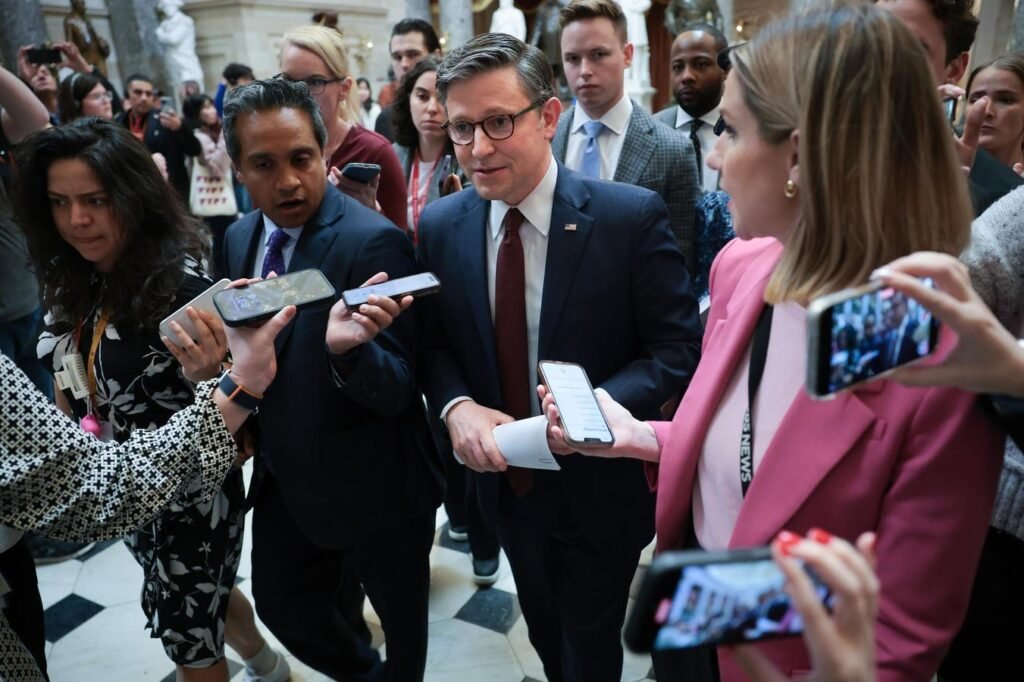U.S. Speaker of the House Mike Johnson (R-LA) departs the House chamber following a vote at the U.S. … More
Republican lawmakers are facing challenges in identifying ways to reduce costs in public programs like Medicaid. Options being considered include implementing work requirements and combating waste, fraud, and abuse. However, to achieve the targeted annual cuts of $88 billion, more drastic measures may be necessary. According to a recent report by Politico, there are discussions about linking Medicaid drug prices to international benchmarks to achieve savings in the budget reconciliation bill.
The Medicaid program is a prime target for budget cuts to offset the extension of tax cuts from the Trump administration. A House proposal aims to save $1.9 trillion over a decade, with Medicaid being a significant part of these savings.
Medicaid, established in 1965, provides health insurance for low-income individuals in the U.S. With approximately 72 million enrollees, the program plays a crucial role in healthcare. It covers over 40% of all births and nearly two-thirds of nursing home stays in the country. Additionally, 27 million children benefit from Medicaid, and in states that expanded the program under the Affordable Care Act, millions of Americans above the poverty line are insured. Despite its importance, Medicaid remains a target for budget cuts, with various proposals under consideration.
Speaker of the House, Mike Johnson, has ruled out certain policy proposals that would have facilitated achieving the House Energy and Commerce Committee’s savings targets for Medicaid cuts. While work requirements remain on the table, other options are being explored to meet budget goals.
In the Senate, bipartisan efforts are underway to find innovative solutions for reducing spending, particularly related to prescription drugs. Legislation has been introduced to lower drug costs in Medicaid by aligning prices with international averages. This approach aims to achieve cost savings without compromising coverage for enrollees.
The proposed legislation includes fines for pharmaceutical companies that fail to comply with pricing regulations. This approach, along with other strategies, seeks to address rising healthcare costs while maintaining access to essential medications for Medicaid beneficiaries.


